

Highlights from this month's issue of EO's Book Review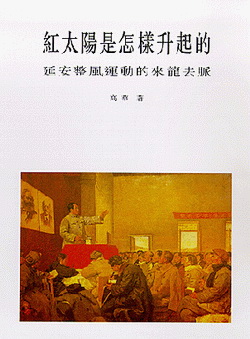
Gao Hua and My Book
[Focus]
Page 3-7
By Xu Qingquan (徐庆全)
Original Text: [Chinese]
The Years of Revolution (革命年代)
By Gao Hua (高华)
Guangdong People's Publishing House, Jan 2010
Xu Qingquan (徐庆全), the deputy editor in chief of Yanhuang Chunqiu magazine, recalls meeting the historian Gao Hua (高华) and the impact the latter had on the completion of his book. Gao Hua says that a person's path in life is intimately connected to the books they read as a child. ..The ancients used to say that reading makes you sensible, when you know how to read, that is...
I asked him if he knows about the impact of his book in China and overseas. He replied that he knew a little, but he does not care too much. He said that he cared more about royalties, because they will help pay for his house.
He asked me about my research. I told him that I came to Hong Kong to use the center’s resources to edit and finish a book, on Ding Ling, the intellectual ...
In the following days, he shared his views with me while he perused my book. He discussed how conflict between intellectuals and the revolutionary cause reveals itself in a mass of contradictions. Intellectuals are interested in personal liberation and democratic government, a view at odds with the communist commitment to ideology and collectivism. The heart of the communist cause in China was the peasant population. The peasants were looking for a cause that will satisfy their needs… the intellectuals wanted to transform the ideology of the farming population ...
Gao Hua sees in separate historical events a unifying logic, a historical process; he can discover in the ups and downs of a single life the struggle of an entire society.
About Gao Hua - Historian, born in 1954 in Nanjing, Jiangsu Province. Gao Hua worked in construction from 1971 to 1978. He began reading history at Nanjing University in 1978, and eventually earned a doctorate degree in history. Gao began teaching at Nanjing University shortly thereafter. His focus is 20th century and contemporary Chinese history.
The Years of Revolution (革命年代) is a multi-volume history of China's Cultural Revolution that took Gao Hua 20 years to complete; The first volume was published in 1988, the last in November of 2008. The work is a cross section of a country in upheaval, and covers both the destructive impact of revolutionary activity and the eventual social and economic progress made by the CCP.
His other works include: 《红太阳是怎样升起的——延安整风运动的来龙去脉》,《身份和差异:1949-1965年中国社会的政治分层》and《在历史的风陵渡口》
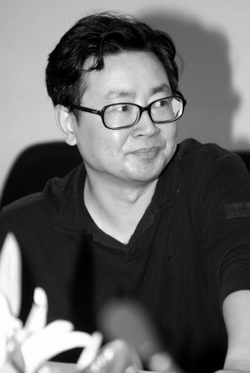 Microblogs: The New Theater of Public Expression
Microblogs: The New Theater of Public Expression
page 10-13
[Dialogue]
Original Text: [Chinese]
Li Xiang (李翔) interviews Du Junfei (杜骏飞)
Du Junfei is a microblogger who writes like an intellectual. He is sharp and cynical, and delivers punch lines and one-liners with ease. As a Professor at the Nanjing University ‘s School of Journalism and Communication and Head of the Department of Communication at the University, Du Junfei is fascinated by new media. He blogs and microblogs, and encourages his students to embrace the internet as a means of expression.
The Following are excerpts from the Economic Observer's interview with Du Junfei:
Q: You seem to enjoy microfiction. Do you think this will replace traditional forms of fiction? Of literature?
Du Junfei: We all think literature is on the decline. Traditional novels are read only in small circles. But literature hasn’t disappeared, and it isn’t on the verge. It’s simply changed…. Look at poetry. Few people read printed poetry. But we find poetry in the lyrics of pop songs; popular songs have become a form of poetry. People are resentful of today’s poetry, just as poets who wrote four-syllable poetry would despair at literature from the Tang Dynasty…
Microfiction is literature.
Q: But works we consider to be great, to be classics, are being neglected. For example, Kevin Kelly just said he’s never going to read War and Peace.
Du: There are fewer people reading War and Peace. But the classics will still be preserved; the inheritance will still be there. But changes in reading habits are normal. They don't always benefit dead authors. Art changes from one generation to the next, it’s what happens.
Q: I think a lot of people have trouble accepting a "work of literature" as 140 characters or less.
Du: There are limits to the microblogging medium, but because of the limits, there is form, like meter or rhyme in poetry. The limits give you variety. Song dynasty poetry or songs from the Yuan dynasty songs all have rules. The 140-character limit is a form, what is art but expression with form?
I think microfiction is a fun version of the novel. But it doesn’t mean that the novel will be limited to this form. It’s a kind of revelation that fiction can be written in 140 characters or less. What will happen in the next generation?
Traditional v. New Media
Q: I am worried that the content generated by traditional media and new media are becoming increasingly similar. New media will cover more and more in depth stories, and traditional media will print flashy, attractive stories. If this continues, won't new media completely replace traditional media?
Du: Not in the foreseeable future. If you look at “in-depth” reports from SNS [Social Network Service], microblogs, and other mediums, they are not sourced by a single medium, but through various news media. Content generation is different for new media. When you work in traditional media, the printed version is the final version. But for microblogs, nothing is ever finished; content is constantly being regenerated, changed, and updated. In the short term, the two forms can cooperate and mutually benefit each other with negligible competition. In the long term, there is the possibility of convergence, but the convergence may lead to changes in both forms. New media is growing at a ferocious rate, and it's only in its infancy. But new media in its current state cannot replace traditional media. As a business model, it works very synergistically. When one plays forward, the other drops back; everyone wins. 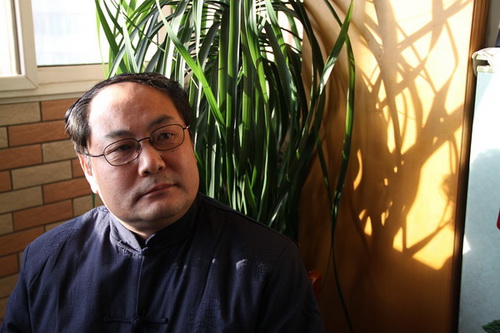
The Economic Observer interviews Yue Nan
By Zhang Ziyan (张子言) and Hou Siming(侯思铭)
[Feature]
p.21-31
Original Text: [Chinese]
Nan Du Bei Gui(南渡北归)
By Yue Nan (岳南)
Hunan Literature & Art Publishing House, Jan 2011
Yue Nan (岳南) has written fiction, critical essays, and books on Chinese history. His works have been translated into English and Japanese. The following is an excerpt from the Economic Observer's Interview with Yue Nan:
Q: Nan Du Bei Gui(南渡北归) is different from your previous works. Your other works focus on personal experiences, but this begins by describing the larger historical context—the resistance against the Japanese invasion and the Lugouqiao incident.
Yue Nan: ... I did not have a choice with the beginning. I did not think it was particularly surprising. This was how you began literary essays in the 80s. You open with "The People's Republic," or else with the founding of the People's Republic etc. After the 80s, I tried introducing single characters or beginning with a small event. In the beginning, I wanted to write the opening of Nan Du Bei Gui this way. But I thought about it and realized it couldn't work. One character in three books, it's not going to work. So I decided to begin with the Lugouqiao incident.
Q: Nan Du Bei Gui is divided into three parts, Nan Du, Bei Gui, and Li Bei; all three have been published. A lot people have read the first part, about the Lugouqiao incident, and are calling you “pro-Chiang Kai-shek ”. Do you think your descriptions are historically accurate?
Yue Nan: As far as the Lugouqiao incident is concerned, I do think my descriptions are true to history. History, what students read now, has been changed and rewritten.
Q: You once said something like "geniuses always appear in packs." The "masters" you write about, are they geniuses too?
Yue Nan: They have to be; they can't be average people. Geniuses are not accidents; they are made through a combination of upbringing, social environment and background ...There could be geniuses among your classmates, people whom, no matter how you look at it, are just too smart. People like this, in the right environment, will thrive. But without the right environment, they may become nothing at all.
Q: Are there other reasons for the disappearance of "masters"? A person has many sides: he can be an economist, a politician, or an intellectual. Today, we emphasize economics and devalue culture. In Chen's day, culture was important. Perhaps we don't need "masters" anymore because society has changed. Today's billionaire is the equivalent of yesterday's "master."
Yue Nan: Yes. Man is determined by his historical context. The University of Chicago's Enrico Fermi has been called the world's last "master."
If we look back on it now, those we call "masters" were renaissance men, they knew about everything. They were probably best versed in history, but they were learned in every subject. After world war two, education very quickly became specialized. No matter how smart you are, you can only study two, maybe three subjects extensively. If you are a master in one subject, you feel inferior to people in the past who were masters of five. But actually, you are standing on their shoulders; you've taken their work further.
Q: Having written about so many "masters," how would you describe yourself?
Yue Nan: People like my books because I put so much into them, but also because the lives of the people I write about are extraordinary, they move us. This is what I wanted to say in the books. When I think about the people I've written about, I feel like I've been lifted. They say that trials make great men, and whenever I feel like I can't go on, I think about them. This is the power of literature, of culture. As long as there is culture, these things will not be forgotten. Even if they are, they will not be lost.
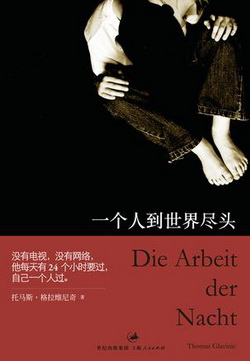 A Silent Crisis
A Silent Crisis
By Qin Jihua (秦继华)
[Literature]
p. 15
Original Text: [Chinese]
Die Arbeit der Nacht or Night Work (一个人到世界尽头)
By Thomas Glavinic
Translated by Zhong Chong (郑冲)
Shanghai People's Publishing House, Oct 2010
Thomas Glavinic spent three years writing Night Work, a story about the "last man in the world." The difficulties of writing such a story are obvious - the lack of social context, the absence of dialogue, the problem of plot. But Glavinic overcomes them by weaving his protagonist through a series of engagements with objects and the gradual discovery of another "self."
Not much happens. Glavinic’s protagonist commits a series of hopeless, often insane acts on a journey to frantically outrace his other self.
In Night Work, there is no freedom in solitude, only a kind of increasing panic and horror.
We see in the novel Glavinic's reflections about the frantic pace of modern life, that we must keep racing lest we are left behind by a rapidly changing world. While we are racing, we are losing our ability to truly communicate with each other. For Glavinic, this is the real solitude.
Also in Literature:
Zhang Xingjun (张兴军) reviews a recent translation of The House at Sugar Beach (我的家在蜜糖湾) by Helen Cooper (p. 17)
Lu Pin (吕品) revisits D. H. Lawrence's controversial classic Lady Chatterley's Lover (p.19)
Lighthouse and Animal Eyes
By Yin Zhimin (尹敏志)
[Academic]
page 37
Original Text: [Chinese]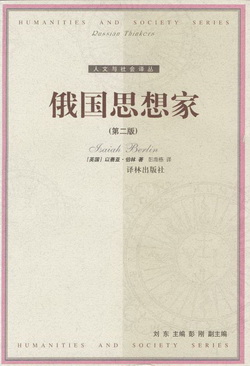 Russian Thinkers (俄国思想家)
Russian Thinkers (俄国思想家)
By Isaiah Berlin
Translated by Peng Huaidong (彭淮栋)
Yilin Press, Sep 2001 (Original published in 1978)
The philosopher Isaiah Berlin called the period between 1848 and 1855 the "dark night of nineteenth century Russian obscurantism" in his Russian Thinkers. This was the period when the many headed monster of revolution was unleashed upon freedom fighters and intellectuals. For Berlin, the question was not whether one should resist, but how to resist. When the intelligentsia submits, the rest of the population, made up of uneducated peasants, are more than ready to embrace the destructive task based on simple ideology. Marxism, or more specifically Leninism, thrives on the "us and them" division. Under its flag, the masses are ready to annihilate enemies, be they ethnic minorities or foreign forces.
As a philosopher, Berlin is primarily interested in the question "how did we get here?" In Russian Thinkers, he traces the intellectual history that lead to the fall of the czar and the rise of Lenin. In the process, Berlin observes that the works of philosophers undergo profound changes; thinkers often end up embracing the ideas they once vigorously opposed. He champions pluralism over monism, liberalism over totalitarianism. Pluralism does not solve the world's problems and comes with its own set of conflicts. But Russian Thinkers is a valuable analysis of nineteenth century German and Russian philosophy.
Also in Academic:
Chen Xiang (陈祥) reviews 德意志的另一行泪 (Germany's Other Tears) by Zhu Weiyi (朱维毅)
Zuo Ye (左页) reviews a translation of Uta Gerhardt's Talcott Parsons, an Intellectual Biography by Li Kang (李康)
Li Lingjie (李灵洁) examines the link between Matsu worship and Chinese conception of public welfare
You can download a copy of the February 2011 issue of the EO's Book Review here.
Links and Sources
EO's Book Review: Official Site
Douban: EO\'s Book Review
Economic Observer: January Issue of EO\'s Book Review
Economic Observer: December Issue of EO\'s Book Review

